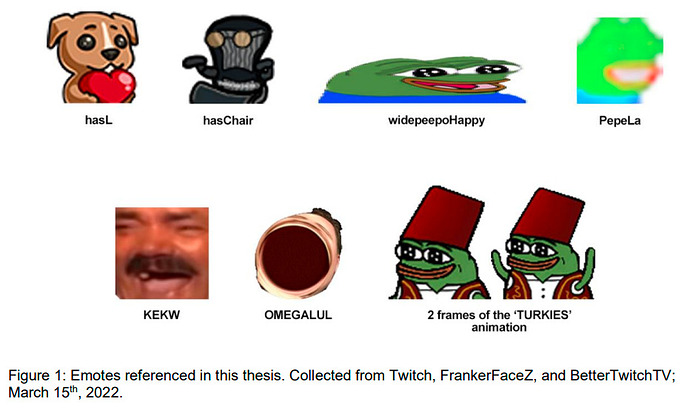Continuing the discussion from Introduce yourself!:
@fern wrote his thesis on Hasan Piker and leftist Twitch culture:
Leftist political livestreaming has become an increasingly visible subset of Twitch.tv content, and internet livestreaming content generally, with Hasan ‘hasanabi’ Piker the most prominent among content creators in this new genre. This thesis aims to understand how leftist political livestreaming fits into a historical lineage of partisan political broadcasting, from talk radio to present day; structures labor and generates income; and how its programming engages its audience through its use of technological affordances, collective affect, and an integrated materialist analysis.
In the first chapter I trace the lineage of Twitch’s political streams. I synthesize previous literature beginning with right wing talk radio stars like Rush Limbaugh, on through television political media, liberal infotainment, online gaming, and online radicalism. With this context I situate Piker and other leftist political livestreamers in historical context, outlining the cultural and technical affordances they draw from legacy media. Alongside this, I also describe the novel adaptations both they and the format of livestreaming introduce to political media.
In the second chapter I take a political economic approach to political livestreaming. Drawing on statements of streamers, public-facing company policy, trade blogs, etc. – I first break down the way that both streamer and audience labor are configured on the platform. Building from that, I analyze how Twitch operates as a payment processor, handling and incentivizing transactions between audiences and content creators. And finally, I discuss how Twitch is able to exert political power over its users by gatekeeping their income, producing a chilling effect, which affects political streamers’ coverage.
In the third chapter, I describe the experience of a Twitch stream on Piker’s channel using mixed methods. Combining autoethnography, the walkthrough method, and computational text analysis; I describe the programming of the stream’s content itself and its phenomenological and affective dimensions. I use this description to show how political discourse is shaped and received by sides of the streams’ communicative circuit.
